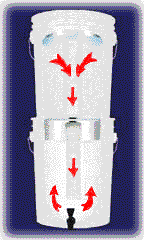|
Press CTRL+D to bookmark this page! |
 |
Click here for
EarthMotherCrying Wallpaper
|
Human Experimentation - Nuremberg Code - War Crimes
|
|
|
|
|
|
|
AMERICAN INDIAN NEWS TICKER!!!
|
Viruses,
Human Error,
Disk Crashes!
Protect your
computer
files before
it's too late.
Try @Backup FREE today.
Click Here
 |

Local
Governments
will not supply
you with
water for very much longer!
click for cheap
emergency water filtration as seen in
Popular Mechanics Magazine |
Aliens? or the "Ant People" who cared for the Hopi?
Native Americans believe there is "duality" -- good and bad --
in everything, and that would have to include
aliens. The Hopi and Pueblo say the "Ant People"
fed and cared for their people while they were living underground,
|
between the 3rd and 4th (our) world, before they reemerged into
the "upper world" at Sipapu, which is in the American
Southwest. |
 |
Are the "Ant
People" back
to help us...
again? |
|
Saudi Arabian authorities recently banned this website
because of their accurate earthquake
predictions.
Learn about
who "they" are,
what the
U.S. Gov't is hiding, the
coming pole shift,
in 2003, how
to prepare, advice
for shelter
safe from
the coming
flooding,
homes,
gardening,
self-reliance, meet
others, information,
etc. |
Let www.Wovoca.com help you get prepared! |
|

|
|
Human Experimentation
Nuremberg Code - War Crimes Military Tribunal
From "Trials of War Criminals Before the Nuremberg Military Tribunals Under
Control Council Law No. 10", Vol. 2, Nuremberg, October 1946 - April 1949.
(Washington, DC: US Government Printing Office, 1949). pp 181-182.
The great weight of the evidence before us is to the effect that certain
types of medical experiments on human beings, when kept within reasonably
well-defined bounds, conform to the ethics of the medical profession generally.
The protagonists of the practice of human experimentation justify their views
on the basis that such experiments yield results for the good of society
that are unprocurable by other methods or means of study. All agree, however,
that certain basic principles must be observed in order to satisfy moral,
ethical and legal concepts.
-
The voluntary consent of the human subject is absolutely essential.
-
This means that the person involved should have legal capacity to give consent;
should be so situated as to be able to exercise free power of choice, without
the intervention of any element of force, fraud, deceit, duress, overreaching,
or other ulterior form of constraint or coercion; and should have sufficient
knowledge and comprehension of the elements of the subject matter involved
as to enable him to make an understanding and enlightened decision. This
latter element requires that before the acceptance of an affirmative decision
by the experimental subject there should be made known to him the nature,
duration, and purpose of the experiment; the method and means by which it
is to be conducted; all inconveniences and hazards reasonably to be expected;
and the effects upon his health or person which may possibly come from his
participation in the experiment.
-
The duty and responsibility for ascertaining the quality of the consent rests
upon each individual who initiates, directs or engages in the experiment.
It is a personal duty and responsibility which may not be delegated to another
with impunity.
-
The experiment should be such as to yield fruitful results for the good of
society, unprocurable by other methods or means of study, and not random
and unnecessary in nature.
-
The experiment should be so designed and based on the results of animal
experimentation and a knowledge of the natural history of the disease or
other problems under study that the anticipated results will justify the
performance of the experiment.
-
The experiment should be so conducted as to avoid all unnecessary physical
and mental suffering and injury.
-
No experiment should be conducted where there is an a priori reason to believe
that death or disabling injury will occur; except perhaps, in those experiments
where the experimental physicians also serve as subjects.
-
The degree of risk to be taken should never exceed that determined by the
humanitarian importance of the problem to be solved by the experiment.
-
Proper preparations should be made and adequate facilities provided to protect
the experimental subject against even remote possibilities of injury, disability,
or death.
-
The experiment should be conducted only by scientifically qualified persons.
The highest degree of skill and care should be required through all stages
of the experiment of those who conduct or engage in the experiment.
-
During the course of the experiment the human subject should be at liberty
to bring the experiment to an end if he has reached the physical or mental
state where continuation of the experiment seems to him to be impossible.
-
During the course of the experiment the scientist in charge must be prepared
to terminate the experiment at any stage, if he has probable cause to believe
in the exercise of the good faith, superior skill and careful judgement required
of him that a continuation of the experiment is likely to result in injury,
disability, or death to the experimental subject.
|
 |

Shapeshift to WOVOCA! to view this site's main page
|
 |
Click on the graphic to vote for this
page as a
Starting
Point Hot Site
Please? Only takes 10 seconds!
Wado! |
 |
|
 |
 |
|
![[Image]](pict43.jpg)
|
|
|
|
|











![[Image]](pict41.jpg)
![[Image]](pict43.jpg)